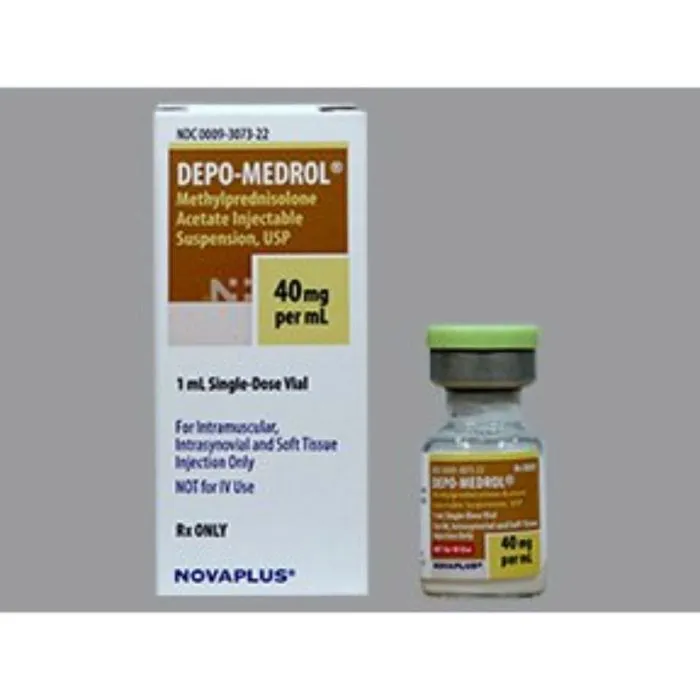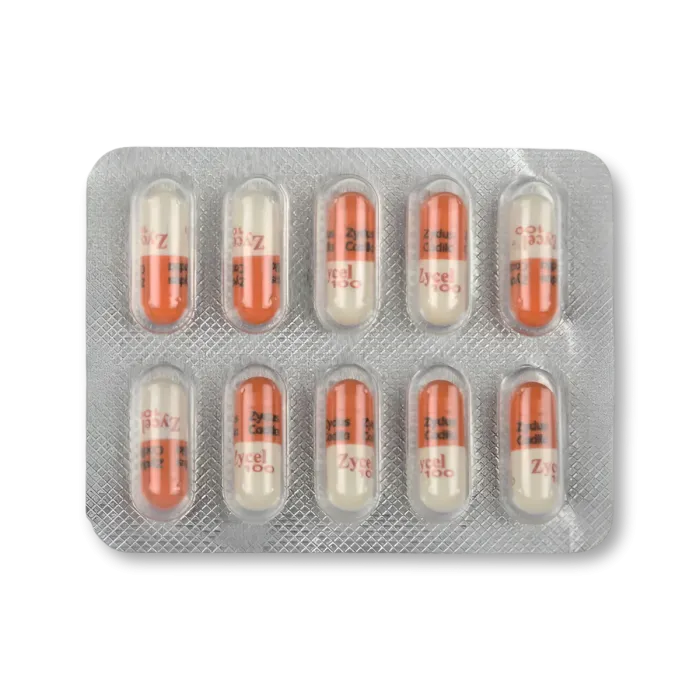Imagine a single tablet that can reduce inflammation, relieve severe allergic responses, and treat several immune-related conditions. This is what Medrol is all about. Generically known as Methylprednisolone, Medrol is a prescription corticosteroid well-known for quickly decreasing the body’s hyperactive immunological response.
Whether administered for a sudden medical crisis or as part of long-term therapy, Medrol’s ability to target swelling, redness, and pain has made it an effective weapon in the battle against inflammatory diseases.
In this article, we will explore what is Medrol, its working, uses, dosage, and side effects. We’ll also look into the safety measures to consider while taking this pill.
What is Medrol, and how does it work?
Medrol is a brand name for Methylprednisolone, a strong synthetic corticosteroid used to decrease inflammation and suppress the immune system in several medical conditions. It imitates the effects of cortisol, a natural hormone produced by the adrenal glands that aids in regulating metabolism, immunity, and stress.
When administered, Medrol enters cells and attaches to specific glucocorticoid receptors, affecting the expression of certain genes. This action lowers the synthesis of inflammatory compounds such as prostaglandins and leukotrienes while increasing the production of anti-inflammatory proteins. As a result, it significantly reduces swelling, pain, and allergic responses.
Medrol is particularly effective in treating autoimmune diseases, allergic problems, and severe inflammatory diseases, where suppressing the body’s hyperactive immune response is essential for minimizing tissue damage and restoring normal function.
Save up to 90% on your medicine bills

Depo-Medrol 40 mg Injection 1ml

Zycel 100 Capsule

Celcox 200 mg Capsule

Medrol 4 mg Tablet
What is Medrol used for?
Medrol can be used to treat various medical conditions, including but not limited to:
- Inflammatory and autoimmune illnesses, including Rheumatoid Arthritis, Psoriatic Arthritis, Systemic Lupus Erythematosus, Dermatomyositis, Polymyositis, and Multiple Sclerosis flare-ups.
- Severe allergies like Hay Fever that cannot be treated with other treatments.
- Endocrine problems, including primary or secondary Adrenocortical Insufficiency, Congenital Adrenal Hyperplasia, and Nonsuppurative Thyroiditis.
- Skin disorders like Psoriasis, Stevens-Johnson Syndrome, and other inflammatory skin illnesses.
- Eye problems, including inflammation, swelling, and ulcers in the eyes.
- Respiratory illnesses, such as Asthma and lung inflammation induced by beryllium toxicity.
- Gastrointestinal illnesses like Ulcerative Colitis and Crohn’s disease.
- Blood and bone marrow problems, such as low platelet counts, Leukemia, and other Blood Cancers.
- Other applications of Medrol include treating certain types of Cancer and severe infections of the brain or heart, as well as replacing corticosteroids in adrenal insufficiency.
Dosage and administration
Medrol is typically given orally in tablet form. The Medrol dose varies significantly depending on the individual condition being treated, its severity, and the patient’s response. The commonly prescribed starting dose is 4 to 48 mg per day of Methylprednisolone.
Strict adherence to the doctor’s directions for dose and treatment duration is essential. Abruptly discontinuing Medrol, particularly after prolonged usage, might lead to withdrawal symptoms, including fatigue, weakness, body pain, and dizziness. Hence, withdrawal should always be done under medical supervision, with a gradual decrease in dose.
Medrol pills are usually taken with meals to reduce stomach distress. The dosage time may also be crucial; for example, taking it in the morning may lower the chance of Insomnia.
Side effects
Medrol is effective in treating several diseases, but it can also have various side effects. The incidence and severity of side effects are primarily based on the dosage and duration of therapy.
The commonly reported Medrol side effects are:
- Weight gain
- Acne
- Dizziness
- Headache
- Nausea
Besides these common and mild side effects, Medrol can result in the following severe side effects, although rare, that require immediate medical attention:
- Severe abdominal pain
- Vision problems
- Irregular heartbeat
- Muscle weakness
- Difficulty breathing
Using Medro in the long term can cause more severe side effects like High Blood Pressure and thinning of the skin. If these side effects persist or turn bothersome, seek medical help immediately.
Precautionary measures
The following precautionary measures need to be taken while having Medrol to enhance its effectiveness or reduce the likelihood of any adverse reactions:
- Do not take the pill if you are allergic to Methylprednisolone, lactose, or related corticosteroids.
- Before taking the medication, inform your doctor about your medical history and other medications or supplements you are taking to avoid any harmful interactions.
- Avoid alcohol intake to minimize stomach discomfort and ulcer risk.
- Pregnant and breastfeeding ladies should contact their doctor before considering the medicine, as it may harm the child.
- Elderly individuals need closer monitoring for Osteoporosis, infections, and blood pressure.
- Do not take Medrol with Non-steroidal Anti-inflammatory Drugs (NSAIDs).
Conclusion
Understanding what is Medrol is essential for everyone who has been prescribed this potent medicine. Medrol (Methylprednisolone) is a powerful corticosteroid commonly used to decrease inflammation and inhibit immunological responses in several illnesses, including autoimmune disorders, allergies, Asthma, and Arthritis.
While Medrol can be highly successful in treating symptoms and increasing quality of life, it should be taken cautiously due to the risk of adverse effects such as raised blood sugar, weaker bones, mood changes, and increased susceptibility to infections.
Proper dose and careful monitoring are critical, especially for long-term usage. Patients are advised not to discontinue Medrol abruptly without medical supervision, since this might upset the body’s natural hormonal balance.
Medrol, when taken correctly and under medical supervision, can be a helpful treatment for various chronic and acute inflammatory illnesses.

Frequently Asked Questions
Does Medrol work immediately?
No. Medrol does not act immediately, but typically reduces inflammation and pain within a few hours. Depending on the condition being treated and the dosage given, the full effects might take one to three days.
Is Methylprednisolone safe for kidney patients?
Methylprednisolone can be used to treat kidney disease, particularly Nephritis, but it must be given cautiously. It could worsen fluid retention or blood pressure. Therefore, a medical professional must monitor the patient frequently during treatment.
Can Medrol affect your sense of taste?
Yes, some people report having a metallic or bitter taste after using Medrol. This adverse effect is uncommon and usually only temporary, disappearing if the medicine is discontinued or the body adapts to the corticosteroid.
Can Medrol affect your voice?
Yes. Prolonged use of Medrol may induce muscular weakening, especially in the vocal cords, which might change your voice. Swelling caused by fluid retention can also have a little impact on speech tone and clarity, but this is rare.
Is Medrol ever used in veterinary medicine?
Yes, Medrol can be administered to pets, particularly dogs and cats, to treat allergies, Arthritis, and autoimmune illnesses. However, veterinary dosages and monitoring differ from those used in human medicine to ensure pet safety.
Cheap Medicine Shop only refers to credible, authoritative sources for our content. If you’re curious about how we ensure the integrity of our content, we encourage you to read our Content Information Policy.














